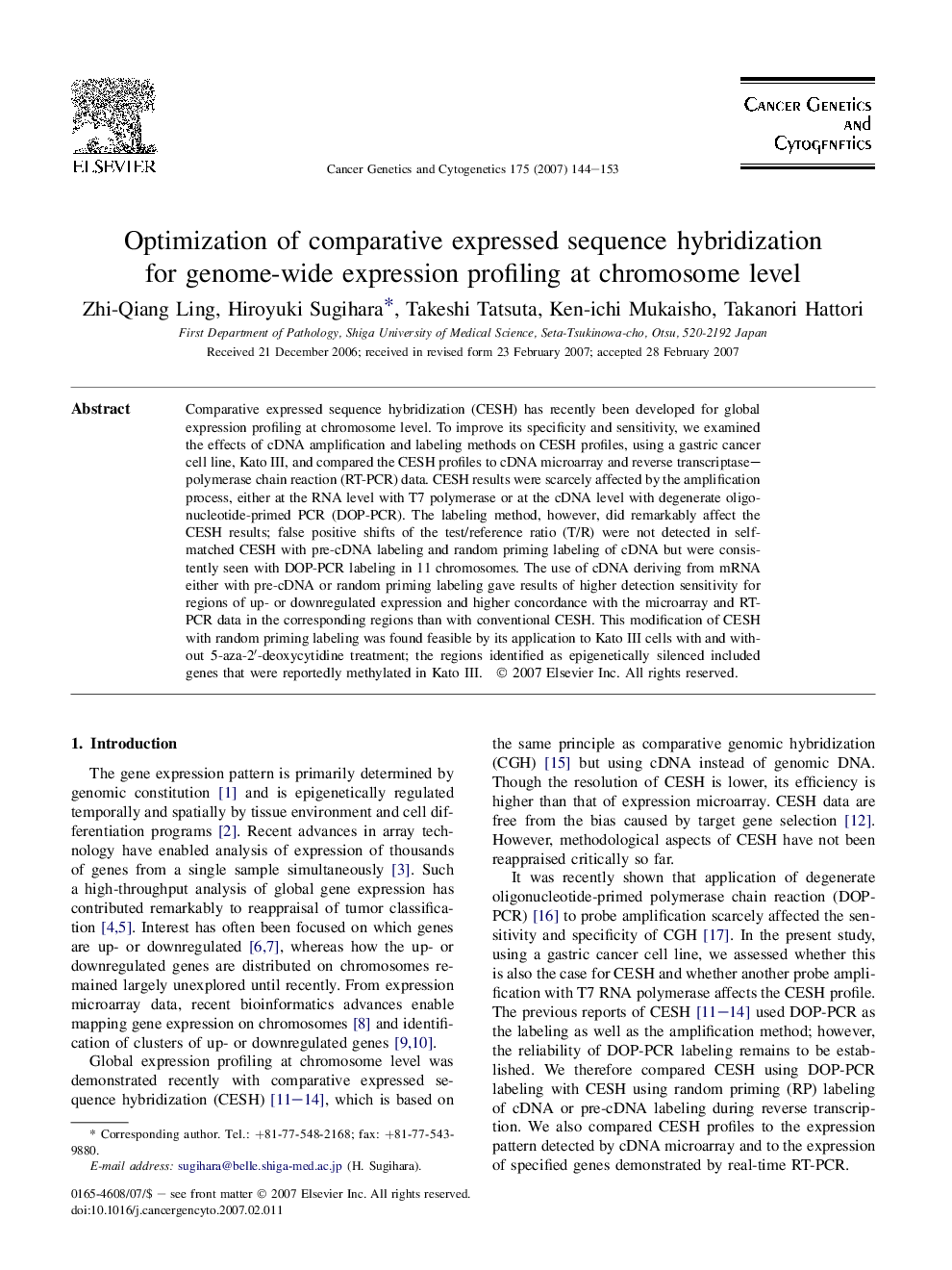| Article ID | Journal | Published Year | Pages | File Type |
|---|---|---|---|---|
| 2112110 | Cancer Genetics and Cytogenetics | 2007 | 10 Pages |
Comparative expressed sequence hybridization (CESH) has recently been developed for global expression profiling at chromosome level. To improve its specificity and sensitivity, we examined the effects of cDNA amplification and labeling methods on CESH profiles, using a gastric cancer cell line, Kato III, and compared the CESH profiles to cDNA microarray and reverse transcriptase–polymerase chain reaction (RT-PCR) data. CESH results were scarcely affected by the amplification process, either at the RNA level with T7 polymerase or at the cDNA level with degenerate oligonucleotide-primed PCR (DOP-PCR). The labeling method, however, did remarkably affect the CESH results; false positive shifts of the test/reference ratio (T/R) were not detected in self-matched CESH with pre-cDNA labeling and random priming labeling of cDNA but were consistently seen with DOP-PCR labeling in 11 chromosomes. The use of cDNA deriving from mRNA either with pre-cDNA or random priming labeling gave results of higher detection sensitivity for regions of up- or downregulated expression and higher concordance with the microarray and RT-PCR data in the corresponding regions than with conventional CESH. This modification of CESH with random priming labeling was found feasible by its application to Kato III cells with and without 5-aza-2′-deoxycytidine treatment; the regions identified as epigenetically silenced included genes that were reportedly methylated in Kato III.
